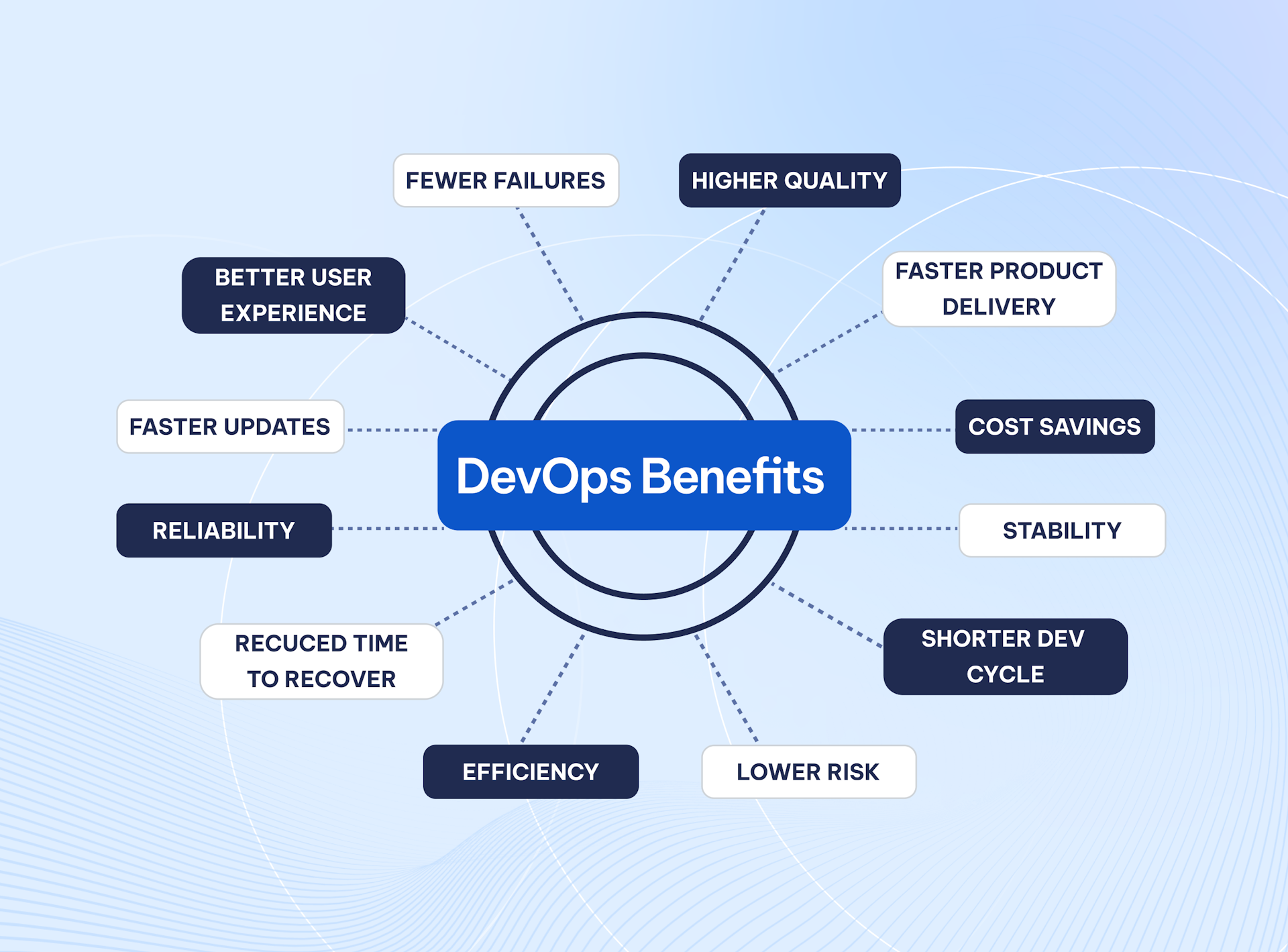Benefits of a DevOps Strategy
Published on Oct 20, 2021
DevOps has swiftly captured the attention of the IT industry, and for all the right reasons. In today's work climate, faster delivery and shorter turnaround times in the software development industry have become critical to an organization's success. As a result, the demand for high-quality output with few post-production mistakes gave rise to DevOps. Let us learn more about DevOps and the benefits that it brings to your team.
What Is DevOps?
The word "DevOps" was coined by merging the terms "software development" (Dev) and "operations" (Ops). Patrick Debois created the phrase in 2009 to allow for the rapid and effective distribution of software updates, bug fixes, and improvements.
Varied people have different interpretations of what DevOps is. No matter how you define DevOps, it is critical to understand how to embark on the DevOps journey in order to enjoy the benefits. Below are the benefits of a DevOps Strategy.

1. Collaboration
DevOps promotes an environment where the different teams work together to achieve common organizational objectives. This means that the teams in your organization won’t be isolated and won’t work toward department-specific goals anymore.
Plus, a good DevOps strategy can motivate people from different departments to come together and brainstorm the areas of improvement in the operational workflow of a product.
2. Speed
From farm to table, from code to customer. The faster you release great software, the faster you can embrace the business value of the product features.
DevOps speeds up the pace at which you deliver your software features and modifications through automated testing and integration.
3. Innovation
DevOps nurtures innovation by enabling the teams to learn more and understand customer expectations better. Innovation typically stems from brainstorming different perspectives and bouncing ideas off each other.
4. Customer Satisfaction
Your customers hate waiting for products, and the longer you make them wait, the worse the adverse impact.
As DevOps streamlines the different aspects of your workflow, you’ll be able to offer your products at a lower cost when compared to a competitor who doesn’t do DevOps.
5. Agility
The demands of modern customers are intense in terms of product complexity and time. To combat such challenges and to stay ahead of the competition, enterprises have to infuse agility into their processes.
6. Quality and Reliability
The quality of your software is important for obvious reasons, and DevOps can help you maximize that.
DevOps adoption improves service reliability, as it improves the availability and connectivity of services needed for the smooth running of a business.
7. Security
DevSecOps is a way of approaching IT security with an “everyone is responsible for security” mindset. It involves injecting security practices into an organization’s DevOps pipeline. The goal is to incorporate security into all stages of the software development workflow.
8. Competitive Advantage
As a result, DevOps helps a business to be competitive are quicker software releases, high-quality features, continuous feedback incorporation, and maximized ROI.
9. Costs Reduction
9.1. Downtime costs
Network unavailability can be catastrophic. Companies pay the price in billions for network downtime.
DevOps, with its automated testing and continuous integration (CI) and continuous delivery (CD) practices, can help developers produce more efficient code and also identify and fix bugs quickly
9.2. Software release costs
By automating your release pipeline, DevOps enables you to release your software faster. It also reduces the manpower needed for the process and slashes software release costs significantly.
Conclusion
And those are how your company can benefit from DevOps. FABA Technology can provide your company with a comprehensive strategy to elevate your product’s flow and quality. Reach out to us for a free consultation here.









